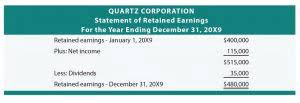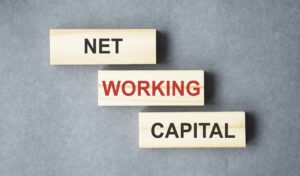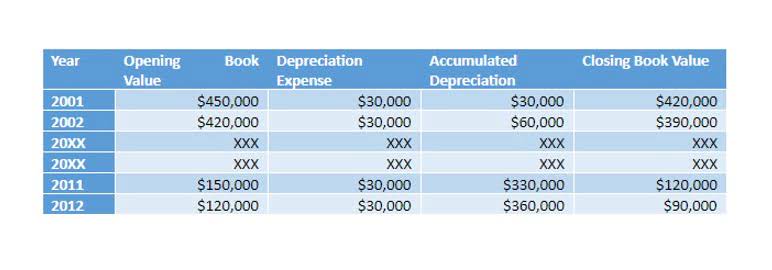
We believe everyone should be able to make financial decisions with confidence. Sole trader bookkeeping requires keeping your financial and business records up to date, as a daily process. You can register voluntarily even if you are below the threshold, and some sole traders decide to do this because it implies you’re a more established, trustworthy business. Want to know how to manage your accounts while you focus on your business as a sole trader? These terms are often used interchangeably to describe individuals who work for themselves but there is a difference.
Bookkeeper vs. accountant: What’s the difference?

Additionally, determining your target audience will be simple if you have a specialty. To help determine your niche, you should also research the market to determine what bookkeeping businesses are already established and which industries they serve. By reviewing these reports, you can gain a better understanding of your business’s financial performance and make informed decisions about how to grow your business. To comply with MTD, you will need to use digital accounting software that is compatible with HMRC’s systems. To calculate your Class 2 NICs, you can use the HMRC’s online calculator. If you pay them annually, you can do so as part of your self-assessment tax return.
- Your accountant (if you have one) will need a full set of your accounts showing your sole trader income and expenditure, from which they can work out your tax liability.
- The American Institute of Professional Bookkeepers offers certification for experienced bookkeepers.
- As a bookkeeper, you oversee the first steps of the accounting cycle, while an accountant typically handles the last two.
- This includes recording all income and expenses, keeping receipts and invoices, and ensuring that your records are up to date.
- You need something that’s MTD-compliant and is able to handle fluctuating income.
Reconciling Bank Statements
With consistent processes to handle document flows and interface with accounting software tools, sole traders can substantially elevate their financial control via bookkeeping. There are considerable benefits sole traders can gain by maintaining meticulous, bookkeeping for sole traders up-to-date accounting records. Accurate invoicing and accounts receivable monitoring provide insight into customer payment patterns and cash flow. Seeking professional assistance when needed is an essential tip for effective sole trader bookkeeping.

Log Transactions in Real Time
If your clients will be sending you things such as receipts or statements, you might want to consider the tool that you’ll use to share files. A popular option is Dropbox, in which you can create a shared folder that both you https://www.bookstime.com/articles/construction-in-progress-accounting and your clients have access to. Regardless of the type of business you run, all business owners should write a business plan. This could help you build credibility inside that segment, as well as help you hone your skills.
Bookkeeping Software Built for Your Sole Trader Business
Standard features include a choice of eight professional invoice templates, time tracking sheets for invoicing and automatic expense tracking directly from a live bank feed. You can also use the app to fill in and file your Self-Assessment return. Navigating the Irish business landscape as a sole trader requires a clear understanding of the legal obligations surrounding bookkeeping. To ensure that your financial records are not only accurate but also fully compliant with the law here is an extract of the essential legal requirements you need to adhere to. For instance, if you’re struggling with complex tax regulations or need advice on how to write off bad debt; seeking help from an accountant or bookkeeper can save you a lot of time and headaches.

Learn more about bookkeeping, how it differs from accounting, the required qualifications, and bookkeeping jobs and salaries. Online accounting tools like MYOB can integrate with your bank account and credit cards, automatically sending information back to your accounting system when money comes in or out of your account. This saves considerable time on data entry, making monthly reconciliations quick and efficient. Keep in mind, though, bookkeepers differ from accountants as they cannot file taxes or perform audits like certified public accountants. While they can receive certifications through training programs, they can also simply acquire on-the-job experience to establish their bookkeeping business. Small businesses often work with tax advisors to help prepare their tax returns, file them and make sure they’re taking advantage of small-business tax deductions.
- Legal requirements for record retention necessitate keeping your financial records for at least 5 years after the 31 January submission deadline of the relevant tax year.
- This will include accounts such as revenue, expenses, assets, liabilities, and equity.
- Discover what you need to know about doing the accounting and bookkeeping for your small business.
- It’s important to perform regular reconciliations to ensure accurate financial reporting and manage cash flow as a sole trader effectively.
- FreshBooks ensures you get paid faster and spend less time worrying about your small business accounting.
Google Launches New Core Update: What This Means For Businesses (August
- One of the most important things to look for when interpreting financial statements is trends.
- You need to pay your quarterly Class 2 National Insurance bill, which is a basic payment that goes towards your state pension in the future.
- In this section, we will define what it means to be a sole trader and discuss the role of bookkeeping in business.
- For sole traders, it’s especially important because you’re responsible for every aspect of your business finances.
- Standard features include a choice of eight professional invoice templates, time tracking sheets for invoicing and automatic expense tracking directly from a live bank feed.
- When completing your tax return, you will need to provide details of your income, expenses, and any tax deductions that you are entitled to.
- Getting paid is one of the reasons you started your business in the first place.
The three main types of financial statements are the income statement (or profit and loss statement), balance sheet, and cash flow statement. Sole traders should use accounting software to simplify business financial management and save hours each day. It makes tracking income and expenses easy, helps you keep up with your tax obligations and ensures you keep accurate records. As a sole trader, it is important to keep accurate records of all financial transactions.
Setting up a chart of accounts
Calculating working from home tax deductionsArrow right


